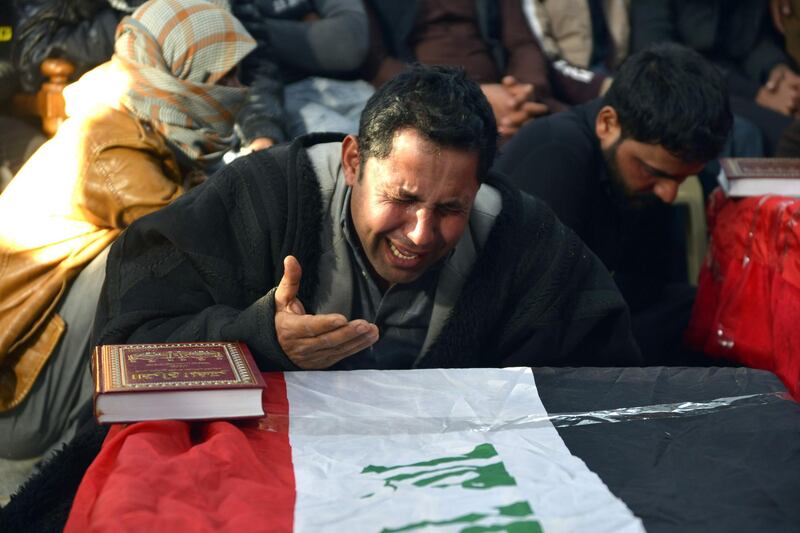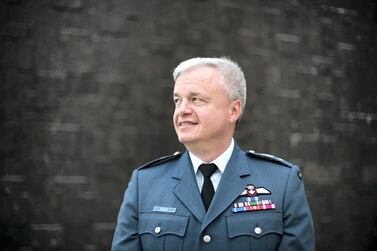Iraqis on Wednesday mourned the death of seven people who were allegedly abducted and killed southwest of Baghdad.
According to Iraq’s High Commission for Human Rights (IHCHR) 19 people went missing over the weekend as they searched for truffles in the desert of Al Nukhayb, between the provinces of Najaf and Anbar. Nine have been released, three are missing and seven have been killed.
"Armed men on motorbikes abducted the group, on 17th February," security forces confirmed in a statement. The men, all members of the Al Hibi tribe, were shot dead. Iraqi forces were later killed as they searched for the men, Anbar MP Jaber Al Jaberi told The National.
No group has claimed responsibility for the attack. But ISIS sleeper cells have staged a scatter-gun campaign of kidnappings and killings to undermine the Baghdad government.
“Terror groups carry out these atrocities to prove their presence and capability,” Mr Jaber said.
The Anbar province Al Jazeera and Al Badia Operations Command are responsible for securing the Al Nukhayb sub district, approximately 20 kilometeres from the Saudi border.
The men were laid to rest on Wednesday, after mourners carried their coffins, covered in the national flag, during a funeral service in the holy city of Najaf.
Iraq declared territorial victory over ISIS in December 2017.
Even after it began losing ground militarily, ISIS still claimed responsibility for attacks made in different countries, though often these have been blamed on "lone wolves" without its direction.
“Terrorists carry out kidnapping, killing, bombings and then disappear into rugged, hard-to-reach desert areas,” Mr Jaber said.
ISIS has gone underground and is looking to reform in Iraq, Syria and Libya. According to Mr Jaber military officials have found it difficult to deploy troops in deserted areas. Iraq’s High Commission for Human Rights (IHCHR) condemned the killings and cautioned Iraqis against travelling to dangerous parts of the country.
"It reflects the brutal and criminal aspect of terrorism against innocent people," Ali Al Bayati, a board member of the IHCHR told The National.
The commission warned that people must take caution when they are in risky areas.
“The government is also responsible in securing all inhabited lands and preventing civilians from getting close to risky areas,” Mr Al Bayati said.
ISIS was born where unemployment, lack of public services and anger made it easy for radicalisation to emerge. Thousands of its fighters and civilian followers have also been killed and thousands more captured. An unknown number remain at large in both Syria and Iraq.







